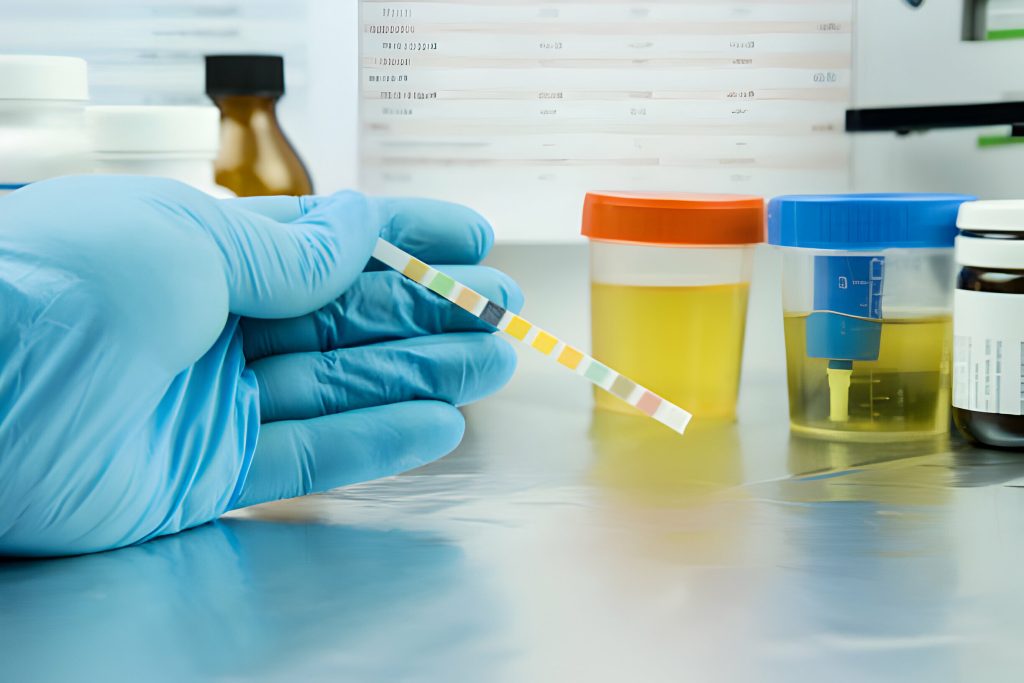In healthcare, sports, and employment, urine drug screens are now everywhere. They detect substances in the body. Doctors ensure proper medication use. Employers maintain safety standards. These tests are vital. However, understanding the sensitivity of urine drug screens is crucial for accurate interpretation. Let’s delve into the details of these tests. We’ll explore their sensitivity, reliability, and the factors that can influence their outcomes.
Unveiling the Basics
Urine drug screens are widely used. They detect substances like alcohol, amphetamines, and opioids. They are fast, easy, and cheap. They are the preferred choice in many places.
Also Read: Do Urine Drug Screens Test for Alcohol?
The Sensitivity Spectrum
Urine drug tests are efficient. But, it’s key to grasp their sensitivity range. The main method is immunoassay (IA) tests. They are quick but may give false results. Confirmatory tests, such as gas chromatography-mass spectrometry (GC-MS), are more reliable. But, they are used selectively due to their cost and time implications.
Factors Influencing Accuracy
Several factors can impact the accuracy of urine drug screens. The type of drugs being tested and an individual’s unique body must be considered. Both are key for a nuanced interpretation. False positives are often triggered by legal substances, like certain cough syrups. They show the importance of understanding potential pitfalls.
Navigating Detection Windows
A remarkable aspect of urine drug screens is their long detection window. Finding substance use days or weeks before testing allows a full history assessment. This feature enhances their utility across various scenarios, providing valuable insights.
The Reliability Quandary
Reliability is a cornerstone when evaluating urine drug screens. Balancing speed and cost is vital. Quick, cheap tests (IA) must be balanced with confirmatory tests (GC-MS). Employers, doctors, and sports officials need results. The results must be fast and accurate. They use them to make decisions.
A Closer Look at IA Tests
Immunoassay tests, despite their popularity, come with inherent limitations. Their sensitivity to specific substances can vary, leading to potential inaccuracies. Setting cut-off levels reduces false positives. It ensures that only large drug amounts trigger positive results.
Also Read: How Does Urine Drug Screening Work?
GC-MS: The Gold Standard
Confirmatory tests like GC-MS serve as the gold standard for reliability. They detect more substances with better accuracy. They safeguard against potential IA test discrepancies. But, GC-MS tests are often secondary in screening. This is due to their cost and time.
Minimizing False Positives
Understanding substances that can cause false positives is crucial. Legal medications contain ingredients like dextromethorphan. This ingredient is found in cough syrups. It can trigger positive results for specific drugs. Awareness of these possibilities enhances the accuracy of result interpretation.
Conclusion
For comprehensive urine drug screening services, trust DeptFord Medical Center. Whether for healthcare, sports, or employment purposes, we understand the importance of sensitivity and reliability in urine drug screens. Our expert team ensures a balance between speed and accuracy, offering both IA tests for quick results and GC-MS tests for confirmation when needed. Contact us today to learn more about our services and ensure the effectiveness of your urine drug screening process.
Frequently Asked Questions
Can medications cause false positives in urine drug screens?
Yes, certain legal medications, like those containing dextromethorphan, can trigger false positives for specific drugs.
Are GC-MS tests always necessary after an initial urine drug screen?
No, GC-MS tests are usually employed selectively due to their cost and time implications.
Do cut-off levels affect the accuracy of urine drug screens?
Cut-off levels are crucial to minimizing the risk of false positives, ensuring only significant drug amounts trigger positive results.
Can urine drug screens detect all types of drugs?
Urine drug screens can detect a range of substances, including alcohol, amphetamines, opioids, cannabinoids, and more.
How long can urine drug screens trace substance use?
Urine drug screens can detect substance use days or weeks before testing, extending the detection window for a comprehensive assessment.
Are IA tests infallible in detecting all substances?
No, IA tests may provide false positives or false negatives, necessitating the use of confirmatory tests like GC-MS for increased reliability.
Is secondhand smoke a concern for urine drug screens?
Secondhand smoke is an example of passive exposure that may trigger false positives. Cut-off levels are set to minimize the impact of passive exposure.
Why do employers use urine drug screens regularly?
Employers, especially in safety-critical industries, use urine drug screens regularly to ensure a substance-free workplace, complying with safety regulations.

